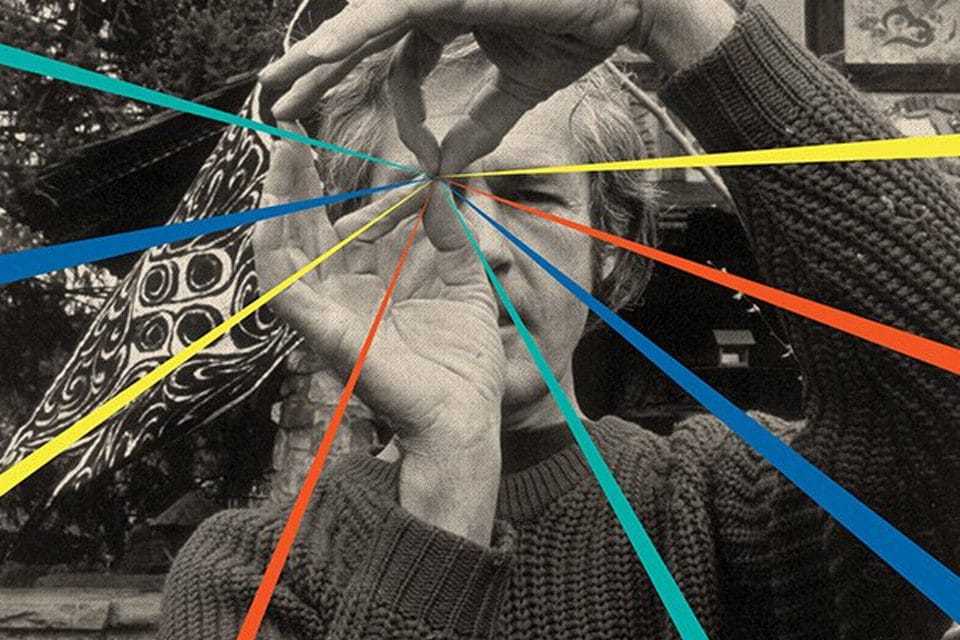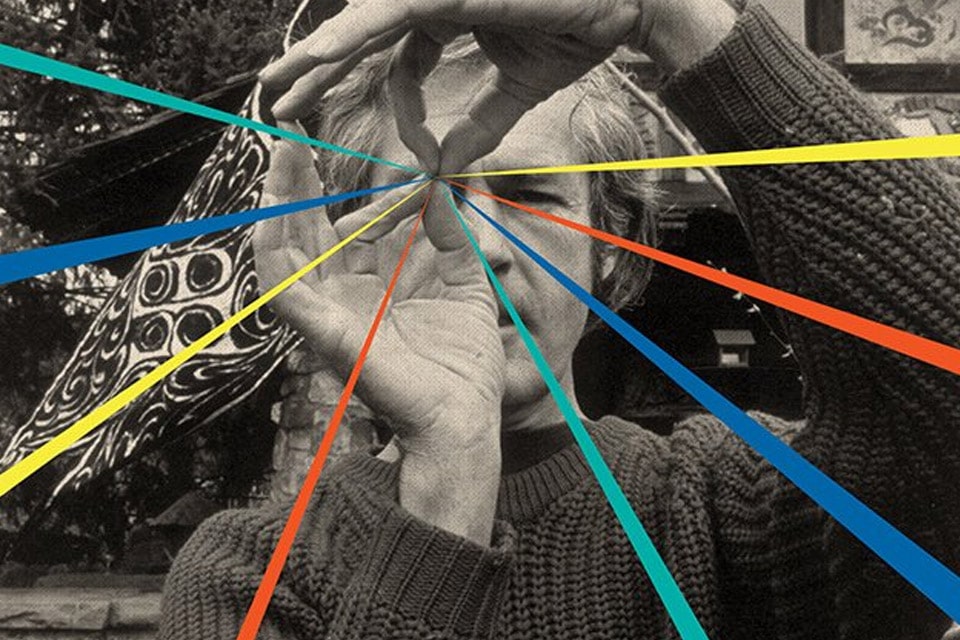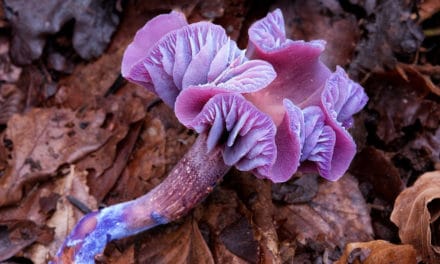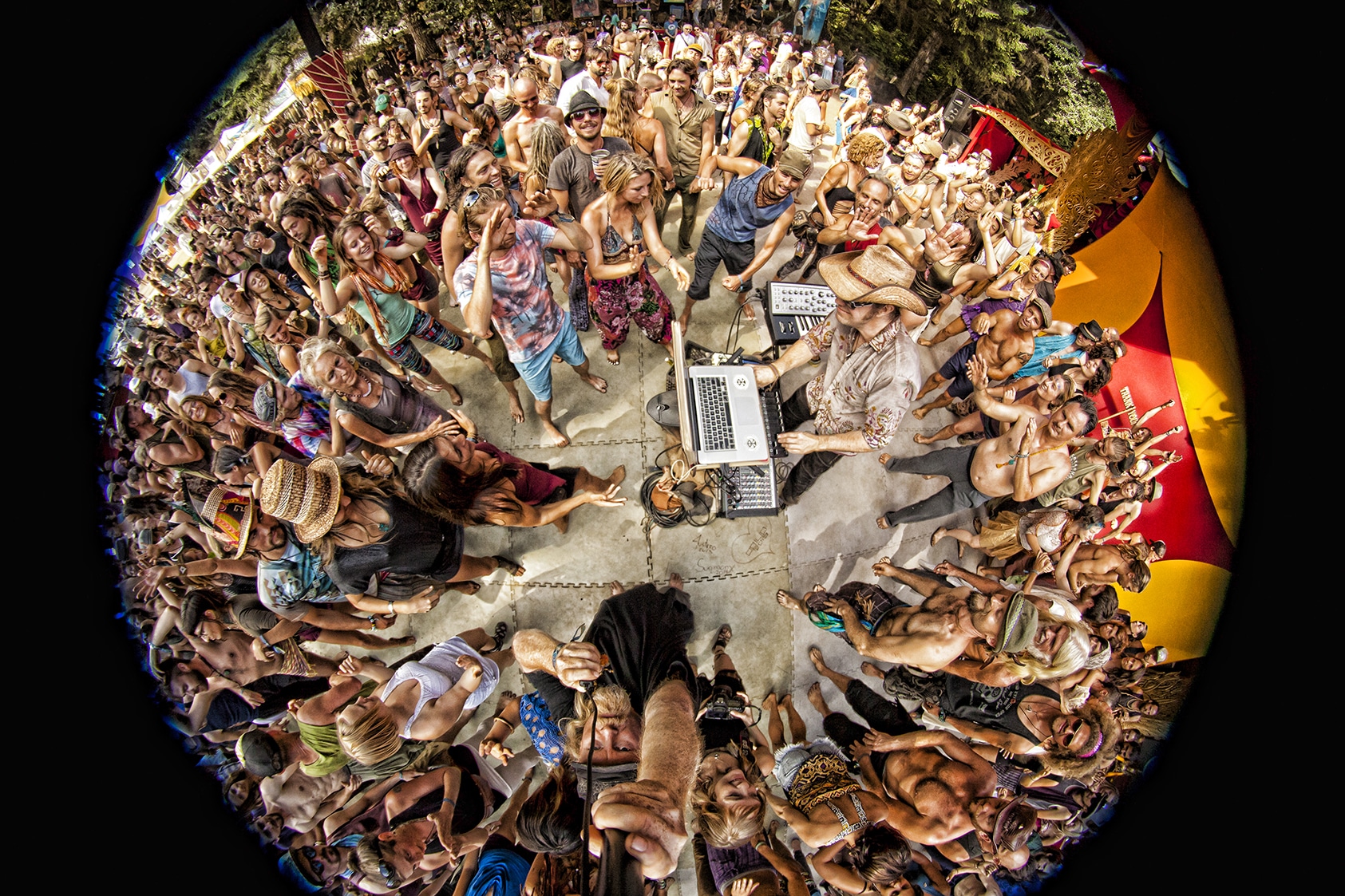Few figures in psychedelic history have been as inflammatory and influential as Timothy Leary. As a pioneer in early psychedelic research he was among the first to scientifically validate the transformational power of the psychedelic experience, but as an outspoken “LSD guru” who challenged authority, he manifested a heavy-handed crackdown on psychedelics that persisted for decades. Exploring the extraordinary legacy of Timothy Leary is the subject of a new book by Jennifer Ulrich called The Timothy Leary Project: Inside the Great Counterculture Experiment. It presents a collection of items from the Timothy Leary papers, a collection held by the New York Public Library that includes journals, trip reports, correspondence letters, and media clippings collected by Leary and others. What makes this book stand out is its reliance on primary sources rather than opinion, and the fascinating first-hand accounts from Leary and other major players in the 60’s. We spoke with Jennifer Ulrich recently about her background, the book, and the surprises that she came across while managing this collection.
Thanks so much for speaking with us, Jennifer- I really enjoyed the book! To start off, can you share a bit about your background and how you came to be in charge of the Timothy Leary collection?
I’ve been working as an archivist and a special collections librarian for many years, and I was hired as a project archivist to process the Timothy Leary papers at the New York Public Library. They wanted someone to focus only on those papers, so I was heading the project, though we did have interns and other people like a digital archivist involved. I was able to complete the project after about 20 months, and part of that was also writing a blog called Transmissions from the Timothy Leary Papers. The idea was to promote the collection and highlight some of the more interesting aspects of it. It was, I would say, one of the more interesting projects I’ve worked on.
I can imagine! Leary was nothing if not interesting.
Yeah, and I guess I should point out, as I do in the book, that I’m not necessarily a leading counterculture or Leary expert. As an archivist, your job is to arrange and describe material to make it available for research, so my approach to the project was without an agenda. I think that gave me a unique perspective in describing the Leary Papers, because, as you know, a lot of people have been invested in this story for so many years. My whole approach was to provide historical context for the materials that I found in the archives, to learn enough to describe them and make them accessible to other researchers. That’s where I came from in regards to my work with the Leary Papers.
I think the “no agenda” approach of your book is powerful, because it’s hard not to have an opinion or agenda when it comes to a figure as polarizing as Leary. It really came across in the book that you weren’t arguing a point; it was simply an explanation of the content you found. Which is great, since it allows the reader to form their own judgements about all of it. I’m curious: prior to this project, did you have any interest or familiarity with the world of psychedelics or the counterculture movement or anything like that?
My knowledge of Leary before this project was that he was “the LSD guy” and a counterculture figure who encouraged people to use LSD. I became aware of LSD and psychedelic drugs as a teenager, as most teenagers do. When I was an undergrad student I studied anthropology so I was familiar with the traditional, ritualistic use of psychedelics by indigenous populations. I was then naturally interested in different belief systems and cosmology, and other figures of the time, like Carlos Castaneda. I was also interested in the counterculture, Burroughs and the Beat writers, along with the black power and women’s liberation movements. I remember reading Sisterhood is Powerful and Cleaver’s Soul on Ice and what an impact it had on me. I’m a librarian, so I know what a large influence Aldous Huxley and Hermann Hesse had on that generation. I read the Electric Kool-Aid Acid Test when I was young, so the details surrounding Kesey and Leary was something that I was aware of, but I wouldn’t say that it is or was my specialty. Maybe it is now (laughs)
Indeed. A line in the book that I really loved was when you said that going through the Leary Papers granted “unique insight into a period in history that has become obscured by its own myth-making.” What did you find when comparing the mythology of Leary with the reality, his papers and tangible artifacts?
A lot of people’s knowledge of Leary is through the press, and he was really demonized by the mainstream press. When you look at someone’s personal papers, you get a perspective on their whole life, and I saw that he was just one player in the larger psychedelic research movement. When he was an academic and working at Harvard, he was corresponding with other psychologists and psychiatrists and others who were working at MIT and Harvard, and it’s clear he was interested in doing serious research. That’s a different perspective than reading just what journalists are writing about him. He was collaborating with people like Allen Ginsberg and Richard Alpert and many others. Even though he’s seen as a figurehead and the “LSD guru,” he wasn’t the one person responsible for all of this- I guess that’s sort of the takeaway.
Doing my research and looking into the subject more, the government was really responsible for the introduction of psychedelics into the United States through the MKUltra project, and was probably supporting research- Leary was possibly handpicked; I don’t know. You see that he was on a path in his academic career and it’s not that he was trying intentionally to derail American culture or to cause chaos.
I think another myth is that people think he was just trying to turn everyone on, and maybe that’s partially true, but in his research, he first wanted to invite people who already had experience with psychedelics like Ginsberg and Burroughs and other artists who had experience with drugs, as well as people who had training in religious studies. So he saw this research as serious.
It was incredible to read about how deeply Leary was tied in with the artists, poets, writers, and musicians of his time, largely through the help of Allen Ginsberg. Before he “turned on” the youth of the world, he was turning on the creative elite, supplying them with LSD, psilocybin, mescaline, and gathering their trip reports. How vast of an impact do you think Leary had on arts and culture in his day?
A lesser known fact about Leary is that he provided a venue and an outlet for artists. Through his organizations, the International Federation for Internal Freedom and also the Castalia Foundation, he would sponsor performances and workshops. He would invite artists to collaborate with him and put on these psychedelic explorations and performances. Leary would lecture while artists would conduct what we could call psychedelic light-shows. So he had relationships like that where there was collaboration with artists. He also invited artists to live at his Millbrook commune, the commune where Leary and Richard Alpert and Ralph Metzner were based. Obviously he was influential in that respect, and he was a prolific writer and had relationships with authors. He was friends with Ken Kesey and in the 70’s edited an issue from one of his journals called Spit in the Ocean, and he had a working relationship with members of the underground press. Without giving a direct example and saying “this person’s art was influenced by Leary” I think he created an environment and created opportunities for artists to produce work.
Leary’s life seemed to be a litany of juxtapositions. He was both a “square” scientist and a psychedelic prophet. He helped to pioneer scientific research into psychedelics, but his zeal for popularizing them caused a backlash that hampered psychedelic research for decades. He taught peace and love, but became an escaped fugitive and was temporarily embedded with militant Black Panthers. The list goes on and on. Through all of these contradictions, what threads of consistency did you find in Leary in terms of his choices, his sense of self, and his impact?
Looking at his papers, it seems that he was always ambitious, an intellectual, and a little rebellious too. Leary was editor of his high school paper, he got kicked out of West Point, he wrote, lectured, and published throughout his life. I think that he saw himself as an educator, even after he left academia. He was very charismatic too, which was a big part of his appeal. Some people might call him a narcissist or egomaniac, but I’m not going to say that because I’m not a trained psychologist (laughs).
It’s almost impossible to imagine how the world of psychedelic research would have evolved without Leary because of his vast influence, both positive and negative. After reading through his library of papers, do you have any sense of whether his work did more to advance psychedelic awareness, adoption and acceptance, or more to harm it? Was he perhaps just the figurehead of an unavoidably messy and controversial reintroduction of psychedelics to the materialist Western mind? Or did he wantonly thumb his nose at the system and conflagrate the issue more than needed?
That’s a good question. It kind of goes back to your first question with the myths. Something that I skipped over is that a lot of people blame him for “ruining everything.” They think this because his court case went to the Supreme Court and overturned the Marijuana Tax Act (and that lead the way for the Controlled Substance Act of 1970 where we got all these schedules of drugs that we currently have.) We have Leary to thank for that, Leary vs. The United States was his court case. He gets blamed for sensationalizing everything when he should have kept quiet so that serious research could be conducted without causing all this media uproar. But like I said, he was just one player. Granted, he liked the limelight and he was extroverted and was talking to the press, but he wasn’t the one responsible for producing all the LSD in the United States. There was a whole West Coast scene going on too, and The Merry Pranksters and the U.S. government had introduced the drugs and created that scene in California.
I just think that there’s a lot to take into consideration with everything that was going on at the time, and all the different people involved. Things played out the way they played out. If you agree that “there’s no such thing as bad publicity” then he definitely created awareness of psychedelics in the mainstream press for those who did not already know about them. So really I can’t say that he intentionally thumbed his nose at the system.
Overall, my interest is in presenting these documents and putting them in historical context and letting people come to their own conclusions. As a librarian and archivist, I’m always wanting to encourage further research. It’s been approximately 50 years since a lot of this happened- it has become part of history- and people will be able to study it now that this material is available for research.
Lastly, was there anything that stood out to you or touched you, or surprised you in going through his documents?
There was a lot that surprised me- his relationships with the Beat poets, his prison escape- it’s all so sensational. When you’re working with someone’s personal papers, there’s a lot of material that’s fascinating and rich, such as correspondence and artwork from people who were influenced by Leary and wrote to him and Castalia and the League for Spiritual Discovery (L.S.D.) That part was really fascinating because it’s a window into what other people were thinking and what they were experiencing.
We are very grateful to Jennifer for taking the time to speak with us. To explore this subject more deeply, check out The Timothy Leary Project book, the Transmissions from the Timothy Leary Papers blog, and the collection of information at the New York Public Library archives.











